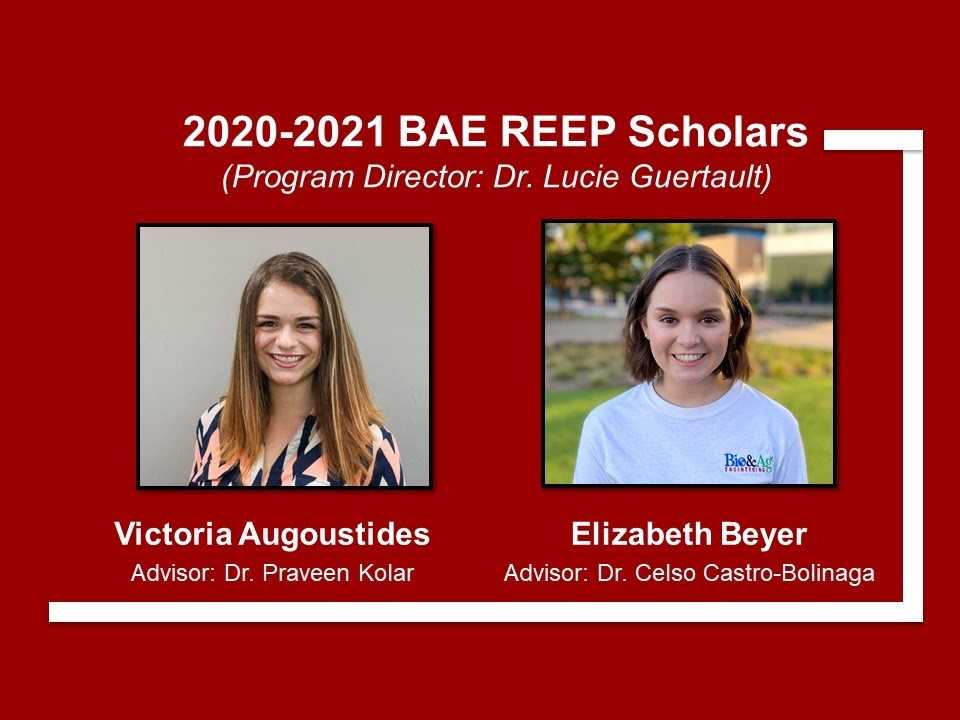This article was originally published by the Department of Biological and Agricultural Engineering.

In the Biological and Agricultural Engineering Department (BAE), one does not have to look far for exciting opportunities that will significantly enhance their college experience. Undergraduates, Elizabeth Beyer and Victoria Augoustides are taking advantage of one of these opportunities as this year’s BAE REEP Scholars. The BAE Research and Educational Enhancement Projects (REEP) provide undergraduate students with the opportunity to conduct research under the guidance of a BAE faculty mentor. Selected students conduct an approved research project of their choosing and then present their findings in the spring semester. Leadership for the program is provided by Dr. Lucie Guertault, Assistant Professor, who serves as a mentor to the undergraduate researchers throughout the program.
Elizabeth Beyer ’22 is a Biological Engineering major with an Ecological Engineering concentration. Her project will compare methods to evaluate channel deformation in stream restoration via numerical simulations. More specifically, she plans to analyze the effectiveness of various stream restoration tools and models in examining streambank erosion and sediment transport in streams of North Carolina’s Piedmont Region. As people continue to alter landscapes, river systems are directly affected. By providing data on the relative effectiveness of restoration methods, she hopes to provide design engineers and restoration specialists with the knowledge to help select the optimum approach for their specific project. Elizabeth plans to use this project to keep the momentum rolling from her time working as an undergraduate research assistant with Dr. Castro-Bolinaga. She became interested in undergraduate research because she sees it as a way to further her knowledge beyond the classroom. Besides being a REEP Scholar, she is also a Park Scholar, Benjamin Franklin Scholar, and Engineering Ambassador, all while serving as the Secretary for the BAE Department’s honor society, Alpha Epsilon.
The second REEP Scholar this year is Victoria Augoustides, a Biological Engineering major with a concentration in Bioprocess Engineering. Shortly after switching her concentration to Bioprocess Engineering, Dr. Kolar became her faculty advisor and recommended she apply for the REEP program. Victoria’s project aims to bring two common resources in North Carolina, pine trees and hog farms, together in an effort to naturally clean swine wastewater. To do this, she will be studying how biochar, sourced from the loblolly pine, can act as a customizable absorbent material to reduce the environmental impacts of hog lagoons. Once a robust and reproducible process has been created and analyzed, if successful, it will be sized up to an industry level. From this project, Victoria looks forward to using local material for a local issue, while gaining experience presenting and publishing her research. This third-year, NC State student is also a member of the University Honors Program and is working towards a minor in Biomanufacturing.
From this program, both Elizabeth and Victoria will gain invaluable experience conducting research in their chosen fields. If you are an undergraduate and have an interest in conducting research of your own, keep an eye out for the next call for the proposals for the REEP program this spring.
This article was originally published by the Department of Biological and Agricultural Engineering.